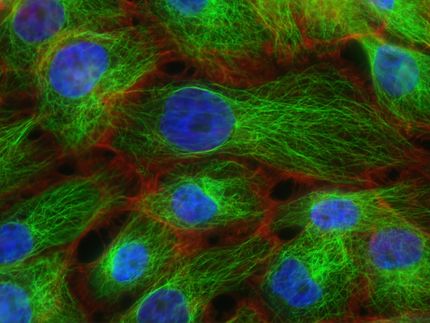Proteomics can improve breast cancer treatment
Researchers at Karolinska Institutet in Sweden have identified a protein that could help physicians decide what type of therapy patients with hormone driven breast cancer should go through. In a study they show that high levels of a protein called retinoic acid receptor alpha (RARA) in breast tumors can be linked to an insufficient response to the cancer drug tamoxifen. The findings are based on a novel proteomics technique, developed at the Science for Life Laboratory.
About 80% of all breast cancer tumors depend on the female hormone estrogen to grow. Estrogen acts by binding to so-called estrogen receptors (ER) in cancer cell. Substances that block the action of estrogen have been shown to prevent the growth of many of these tumors. The goal after surgery is to prevent the growth of any cancer cell that might still be in the body after surgery. A common drug used for this purpose is tamoxifen, which blocks the action of estrogen in the breast tissue by binding to the ER of breast cells.
“This drug has been shown to be very effective, however about one third of the patients do not respond to treatment and their breast tumors return”, says Dr. Henrik Johansson, first author of the Nature Communications publication. “In our study, we show that in these cases the breast tumors often contain high amounts of RARA, which indicates that this protein has an important role in hormone driven breast cancer.”
Under the management of Associate Professor Janne Lehtiö, the research team behind the current study has put a lot of effort into studying resistance mechanism in breast cancer. This time researchers aimed to find markers that separate the groups of patients that will benefit from tamoxifen treatment from those that do not. Amongst other things, they studied protein quantities in breast cancer cell lines and made a comparison between cell lines resistant and sensitive to tamoxifen, respectively.
"In our laboratory we have developed a method that improves protein detection, which makes it possible to detect small differences in protein levels for a large number of proteins in tumor cells”, says Dr. Janne Lehtiö. “With this method we found many interesting proteins, of which one is RARA.”
The team continued to investigate RARA in two independent groups of breast cancer patients. The results show that patients with breast cancer tumors containing high levels of RARA had an increased risk of tumor recurrence, compared to patients with low levels of the protein.
“The relationship between RARA and ER is complex, and something we will continue to investigate”, says Janne Lehtiö. “However, we believe that we have identified a way to tailor breast cancer treatment to fit the individual patient, and that there also are other possibilities for technology development, which may benefit public health care in the future.”
Original publication
Other news from the department science
Most read news
More news from our other portals
See the theme worlds for related content
Topic world Protein analytics
Protein analytics provides a deep insight into these complex macromolecules, their structure, function and interactions. It is essential for discovering and developing biopharmaceuticals, understanding disease mechanisms, and identifying therapeutic targets. Techniques such as mass spectrometry, Western blot and immunoassays allow researchers to characterize proteins at the molecular level, determine their concentration and identify possible modifications.

Topic world Protein analytics
Protein analytics provides a deep insight into these complex macromolecules, their structure, function and interactions. It is essential for discovering and developing biopharmaceuticals, understanding disease mechanisms, and identifying therapeutic targets. Techniques such as mass spectrometry, Western blot and immunoassays allow researchers to characterize proteins at the molecular level, determine their concentration and identify possible modifications.
























































